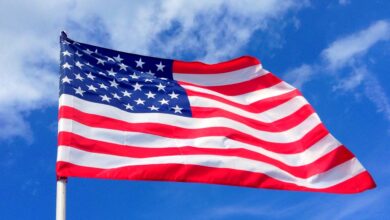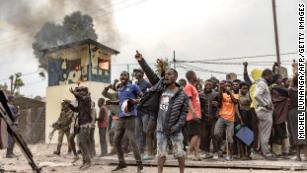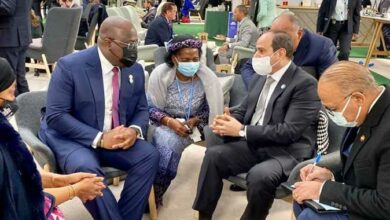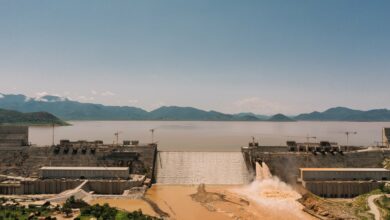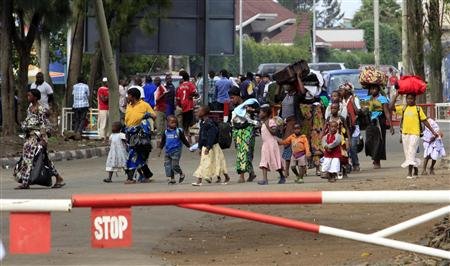
The United Nations mission in the Democratic Republic of Congo said it has opened a probe after residents accused its peacekeepers of killing two people who tried to storm a UN base in the restive eastern city of Goma.
The United States meanwhile condemned rebel attacks on civilians and UN peacekeepers in the mineral-rich and notoriously unstable region.
Martin Kobler, head of the UN's MONUSCO mission, said in a statement, released Sunday, he "deplored" the deaths and had "asked for an investigation jointly led by DR Congo police and the MONUSCO to be opened."
Witnesses said two peacekeepers from Uruguay on Saturday shot dead two people who were part of a crowd that tried to storm the mission's base during a protest against alleged UN inaction in the strife-torn region.
"It was the Uruguayans who opened fire on our group. Two people were killed instantly and four others were injured and rushed to hospital," Augustin Matendo, one of the protesters, told AFP.
A military source who spoke on condition of anonymity said that "the Uruguayan troops were overcome by the crowd which was trying to enter their camp and shot to disperse people."
MONUSCO was not immediately available to comment on the claim.
But Uruguayan President Jose Mujica told local radio that the peacekeepers from his country were not to blame, and "have acted appropriately, complying with all protocols in place in these cases."
Mujica pointed the finger of blame at DR Congo police, saying they were responsible for the deadly fire.
Shelling in Goma's western neighbourhood of Ndosho on Saturday killed three people and wounded three UN peacekeepers, just days after renewed clashes between the Congolese army and M23 rebels.
Washington said it was "alarmed" by the escalating fighting.
"We condemn the actions of the M23, which have resulted in civilian casualties, attacks on the UN peacekeeping mission (MONUSCO) and significant population displacements," said State Department spokeswoman Marie Harf.
"We call on the M23 to immediately end the hostilities, lay down their arms, and disband," she said.
Britain said Sunday that it was withdrawing staff based in the city due to the spike in violence.
"Our staff was instructed to leave the area overnight as a precautionary measure," a Foreign Office spokesperson told AFP.
After a two-month lull, fighting between the army and the M23 has erupted sporadically since mid-July in North Kivu, a chronically unstable region which has the mining hub of Goma as its capital.
In an open letter to UN Secretary General Ban Ki-moon Saturday, M23 rebel leader Bertrand Bisimwa accused Kinshasa of targeting civilians and demanded an independent inquiry into its actions.
The M23, former fighters in a Tutsi rebel group who were integrated into the regular army under a 2009 peace deal but mutinied in April last year, have moved closer to Goma, accusing the government of reneging on its pledge to hold direct talks.
Rebels have threatened to recapture Goma but UN forces, including a 3,000-strong intervention brigade with a robust mandate to eradicate armed groups in the region, moved in to create a security zone around the city.
Now in possession of a beefed-up mandate since this latest resurge in violence, the UN brigade has launched its first military action in the country to back government troops and hold off the rebels.
Rwanda, which accused Congolese troops of firing a rocket and mortar shells over the border in past days, warned Saturday that it would not stand by "indefinitely."
Eastern DR Congo, which borders Rwanda and Uganda, was the cradle of back-to-back wars that drew in much of the region from 1996 to 2003 and were fought largely over its vast wealth of copper, diamonds, gold and coltan, a key mobile phone component.

